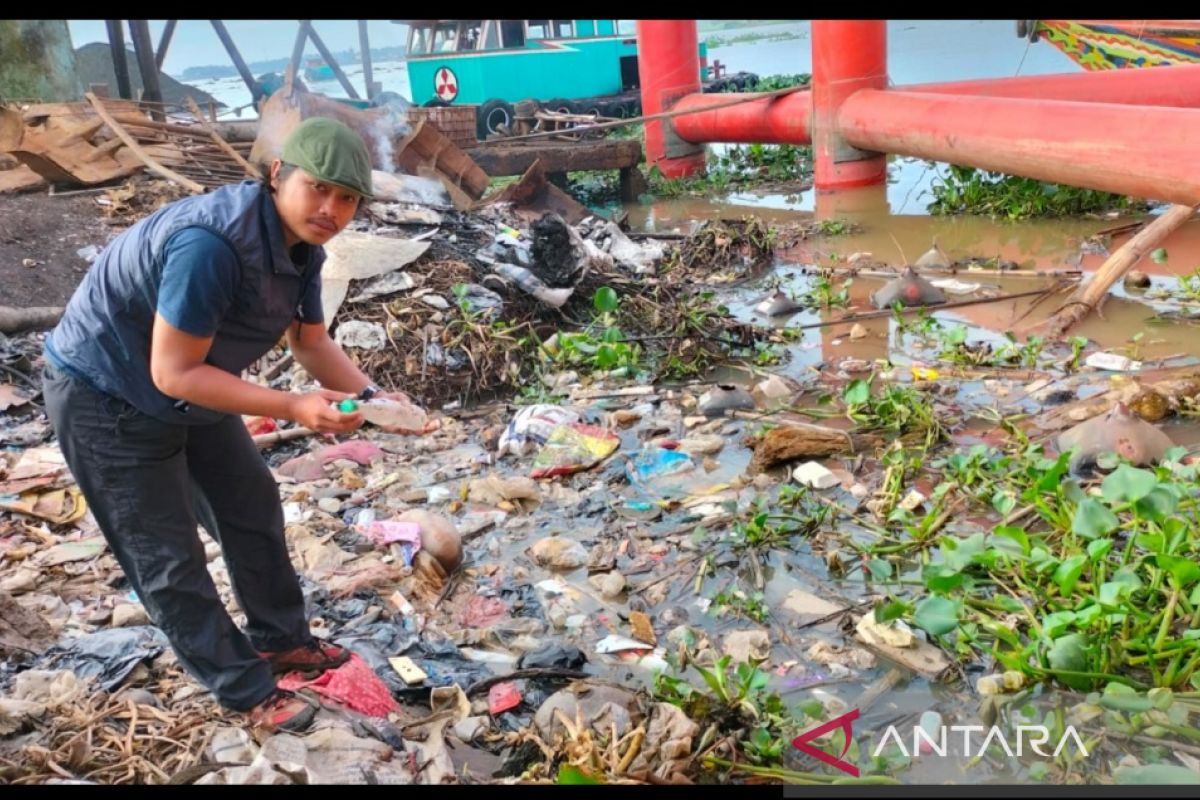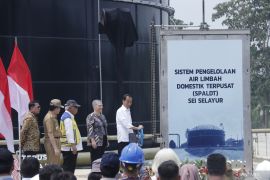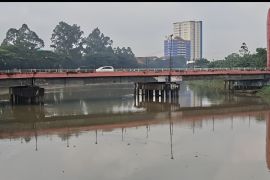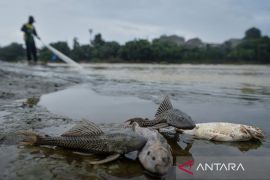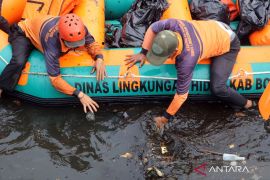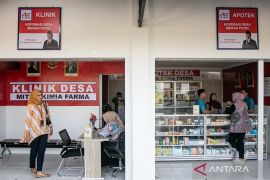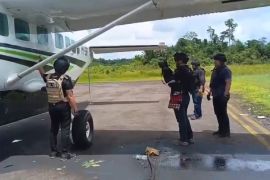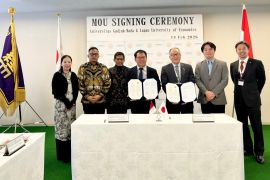"This indication is supported by the fact that it is increasingly difficult to find fish in the Musi River, such as baung pisang (Mystus negricep), kapiat (Barbonymus schwanenfeldii), patin (Pangasius sp.), tapah (wallago catfish), and belida fish (Chitala lopis)," an ESN researcher, Prigi Arisandi, said after inspecting the Musi River in Palembang, South Sumatra, on Sunday.
According to Arisandi, the many activities of land conversion at the river's upstream part, unlicensed mining activities, oil palm plantations, industrial pollution, plastic waste and wastewater from community activities have caused pollution in the Musi River.
Related news: Japanese researchers study freshwater fish at SEAFDEC in Palembang
He emphasized, the pollution of Musi River needs to be a concern of all parties and levels of society so it can remain a place to live and breed for types of fish and other river biotas.
South Sumatra Telapak Association Coordinator Hariansyah Usman added that the purpose of the Musi River expedition was to see the level of pollutants and microplastics.
The water sampling of the Musi River, Usman said, showed high levels of manganese and copper that reached 0.2 PPM (parts per million) and 0.06 PPM respectively, even though the standard should not exceed 0.03 PPM.
He added, "chlorine and phosphate levels are quite high, for chlorine 0.16 mg/liter, (although) it should not be more than 0.03 mg/liter, and phosphate reaching 0.59 mg/liter. High levels of chlorine and phosphate greatly affect the respiratory system of fish and the formation of fish eggs."
Furthermore, the ESN team also found that the surface of the Musi River was filled with single-use plastic waste.
Related news: Palembang`s floating houses to attract tourists
Translator: Yudi A, Kenzu T
Editor: Rahmad Nasution
Copyright © ANTARA 2022
